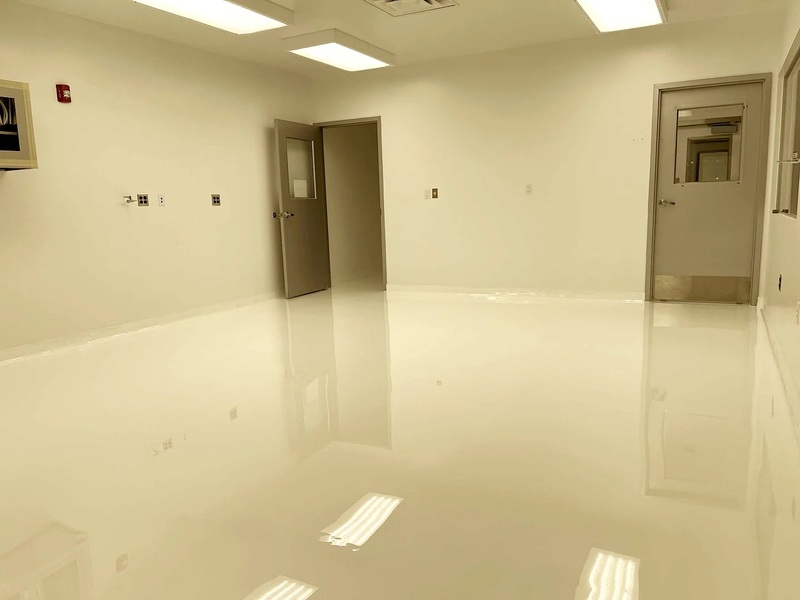
The flooring industry has been evolving, with innovative materials transforming both residential and commercial spaces. In Marietta, GA, two types of epoxy flooring – metallic and quartz – have been increasingly popular due to their durability, aesthetic appeal, and easy maintenance. But how do they compare, and how do you choose between them? Let’s decode the contrasts.
Introduction to Epoxy Flooring
Epoxy flooring is a unique floor material that has steadily grown in popularity. When a resin and a hardener are mixed, the resulting chemical reaction forms a rigid plastic material – epoxy – which is strong, resistant, and bonds extremely well to most base layers.
Epoxy floors are known for their high gloss shine, but they can be tailored to various designs and patterns, creating endless customization opportunities. Two of the most appealing variations are metallic and quartz epoxy flooring.
Metallic Epoxy Flooring: Where Art Meets Durability
Metallic epoxy flooring incorporates metallic pigments that are mixed with epoxy resin. During the curing process, these pigments move to create a shiny, three-dimensional look that resembles scenes from nature, such as swirling rivers or molten lava.
Pros of Metallic Epoxy Flooring
Unique Aesthetics: No two metallic epoxy floors are the same. The installation process, where the metallic pigments are mixed and swirled, results in unique designs that can transform a space into an artistic statement.
Durability: Metallic epoxy is highly resistant to damage from spills, stains, impact, and foot traffic. This makes it ideal for high-traffic commercial spaces, such as retail stores or restaurants, but it also works well in residential spaces.
Easy Maintenance: These floors are easy to clean and maintain. They do not allow for dust and dirt accumulation and can be quickly cleaned with a mop or broom.
Cons of Metallic Epoxy Flooring
Skill Required for Installation: The creation of distinct, intricate patterns in metallic epoxy flooring requires a highly skilled installer. Therefore, it’s not a recommended DIY project.
Cost: While the overall cost depends on the complexity of the design and the square footage, metallic epoxy flooring tends to be more expensive than other types of epoxy flooring due to its unique characteristics.
Quartz Epoxy Flooring: Strength Meets Beauty
Quartz epoxy flooring consists of a combination of epoxy resin and quartz granules. The result is an extremely hard and durable surface that also boasts visual appeal.
Pros of Quartz Epoxy Flooring
Strength and Durability: Quartz is one of the hardest minerals on earth, making this type of flooring incredibly strong. It’s resistant to scratches, chips, and other types of damage, making it a superb choice for heavy-duty environments like garages, industrial facilities, or kitchens.
Non-Slip Surface: The quartz granules provide an excellent slip-resistant surface, enhancing safety in areas prone to wet conditions.
Variety of Colors: Quartz epoxy flooring is available in a wide array of colors and patterns, allowing for a high level of customization based on the desired aesthetic.
Cons of Quartz Epoxy Flooring
Installation Process: Similar to metallic epoxy flooring, installing quartz epoxy requires a professional touch. The process can be quite labor-intensive, particularly in larger spaces.
Comfort: While the strength of quartz epoxy flooring is a significant advantage, it can also be a disadvantage in terms of comfort. The hard surface can be tiring to stand on for prolonged periods.
Making a choice: Metallic vs. Quartz Epoxy Flooring
The decision between metallic and quartz epoxy flooring largely depends on your specific needs and aesthetic preferences. If you’re aiming for a highly artistic, unique, and visually striking floor, metallic epoxy might be the right choice. It’s especially suitable for spaces where you want to make a bold statement.
On the other hand, if you require a floor that can withstand heavy-duty use and where slip resistance is a priority, quartz epoxy flooring might be more suitable. Its range of available colors also offers a certain level of aesthetic customization.
Regardless of your choice, both types of epoxy flooring offer significant benefits in terms of durability, maintenance, and design possibilities. For any flooring project in Marietta, GA, it’s advisable to consult with an experienced professional to ensure the best results tailored to your specific needs and desires. Whether you lean toward the artistic allure of metallic epoxy or the robust strength of quartz, a well-installed epoxy floor can add lasting beauty and function to your space.
Key Takeaways:
- Epoxy flooring, due to its strength, resistance, and bonding capabilities, is an increasingly popular choice for both residential and commercial flooring. Two unique types are metallic and quartz epoxy flooring.
- Metallic epoxy flooring offers unique aesthetics with a shiny, three-dimensional look created by metallic pigments mixed with epoxy resin. These floors are durable and easy to maintain, although they require skilled installation and can be costlier than other epoxy flooring types.
- Quartz epoxy flooring comprises an epoxy resin and quartz granules, resulting in an extremely strong and durable surface. This flooring type is excellent for heavy-duty environments due to its strength and slip resistance. However, the installation can be labor-intensive, and the hard surface may not be comfortable for prolonged standing.
- The choice between metallic and quartz epoxy flooring depends on specific needs and aesthetic preferences. Metallic epoxy suits those seeking a unique, artistic floor, while quartz epoxy is ideal for heavy-duty, slip-resistant requirements.
- Both metallic and quartz epoxy flooring offer significant benefits, and consulting with an experienced professional for any flooring project is recommended to ensure the best results tailored to specific needs and desires.
